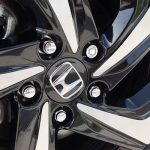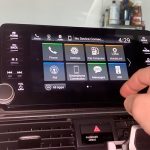The P1300 code is a generic OBD-II code that is often found in Honda vehicles. It indicates a malfunction in the ignition system or a misfire on one or more cylinders.
When this code appears, the engine may run rough or have a lack of power, the check engine light may illuminate, and the engine may stall or hesitate.
In this article, we have provided an overview of the causes and symptoms of the P1300 code in Honda vehicles.
P1300 Honda Meaning
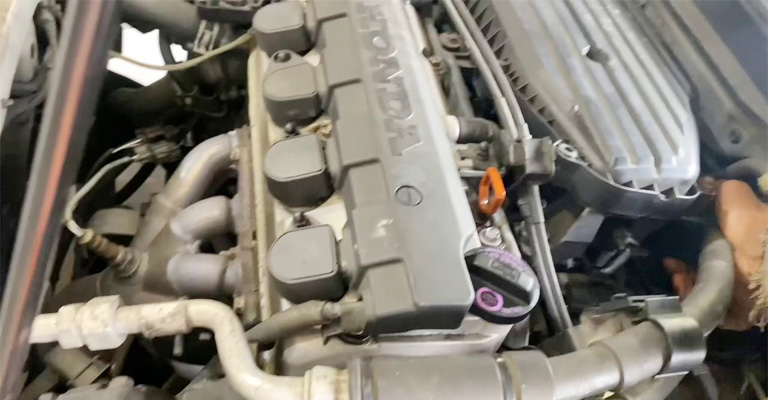
P1300 is a generic OBD-II code that indicates a misfire in one or more cylinders or a problem with the ignition system. In Honda vehicles, this code specifically refers to a malfunction in the ignition system.
Symptoms Of A P1300 Code In A Honda
The symptoms of a P1300 code in a Honda can vary depending on the severity of the issue. Here are some common symptoms to look out for:
Engine Misfires Or Runs Rough:
When one or more cylinders in the engine misfire, it can cause the engine to run rough or feel like it’s stumbling or hesitating. You may notice a lack of power or acceleration as well.
Lack Of Power Or Acceleration:
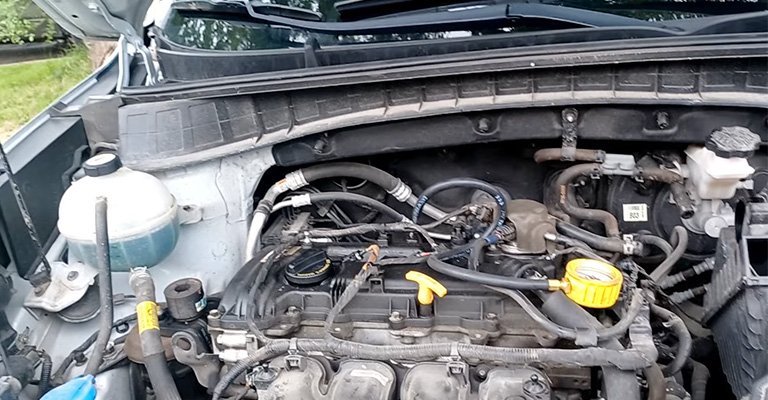
If one or more cylinders are misfiring, it can cause a decrease in power and acceleration. The engine may feel sluggish or unresponsive, particularly when accelerating or going up hills.
Illumination Of The Check Engine Light:
When the engine control module (ECM) detects a problem with the ignition system or misfire, it will typically trigger the check engine light to illuminate the dashboard. This is a warning that there is a problem that needs to be addressed.
Possible Engine Stalling Or Hesitation:
If the misfire is severe enough, it can cause the engine to stall or hesitate. This can be particularly dangerous if it occurs while driving at high speeds or in traffic.
Rough Idle Or Difficulty Starting The Engine:
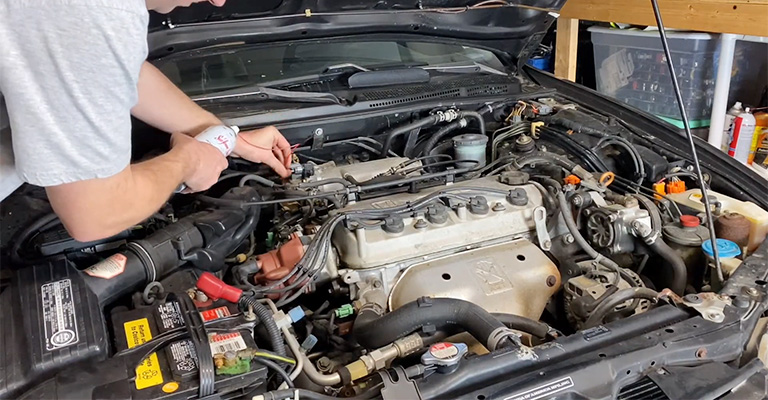
When one or more cylinders misfire, it can cause the engine to idle roughly or have difficulty starting. This can be particularly noticeable when the engine is cold or after the car has been sitting for a period of time.
Code P1300 Honda Causes
The P1300 code in a Honda indicates a problem with the ignition system or a misfire on one or more cylinders. Here are some of the common causes of a P1300 code:
Faulty Ignition Coil Or Ignition Coil Circuit:
The ignition coil is responsible for converting the battery voltage into a high-voltage spark that ignites the fuel in the engine’s combustion chamber. A faulty ignition coil or circuit can cause a misfire, resulting in the P1300 code.
Worn Or Faulty Spark Plugs Or Spark Plug Wires:
Spark plugs are responsible for igniting the fuel in the engine’s combustion chamber, and spark plug wires deliver the electricity to the spark plugs. If the spark plugs or wires are worn or faulty, it can cause a misfire and trigger the P1300 code.
Dirty Or Clogged Fuel Injectors:
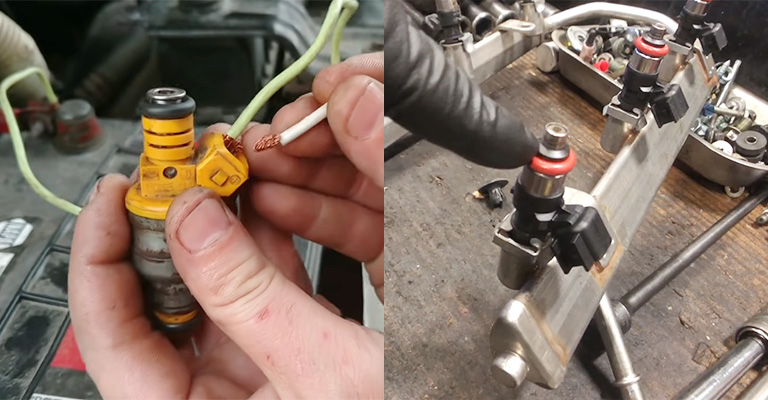
Fuel injectors are responsible for delivering fuel to the engine’s combustion chamber. If the fuel injectors are dirty or clogged, it can cause a lean or rich fuel mixture, resulting in a misfire and the P1300 code.
Fuel Delivery Problems, Such As A Clogged Fuel Filter Or Fuel Pump Malfunction:
If the fuel filter is clogged, it can restrict the flow of fuel to the engine, causing a misfire and triggering the P1300 code. A malfunctioning fuel pump can also cause fuel delivery problems, resulting in a misfire.
Vacuum Leaks Or Other Air Intake Problems:
Vacuum leaks can cause a lean fuel mixture, resulting in a misfire and the P1300 code. Other air intake problems, such as a dirty or faulty air filter, can also cause issues with the air/fuel mixture and trigger the code.
A Malfunctioning Engine Control Module (ECM):
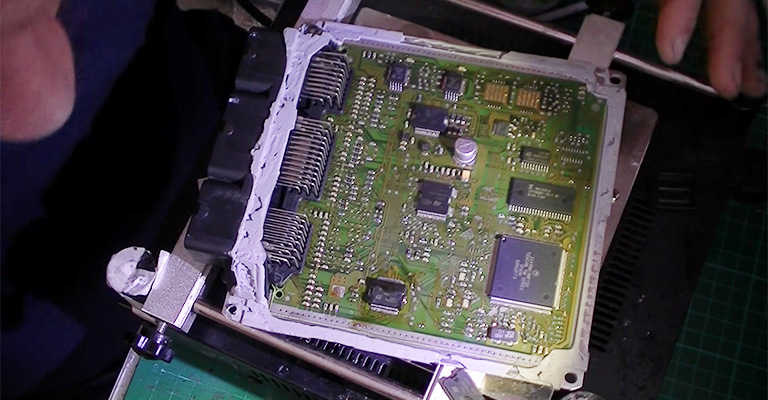
The engine control module (ECM) is responsible for controlling the engine’s various systems, including the ignition system. If the ECM is malfunctioning, it can cause issues with the ignition system and trigger the P1300 code.
How To Fix Honda Code P1300?
Fixing a P1300 code in a Honda requires a proper diagnosis of the root cause of the issue. Once the underlying problem has been identified, here are some common steps that a mechanic may take to repair the code:
- Replace faulty ignition coil or ignition coil circuit: If the ignition coil or circuit is faulty, it will need to be replaced. This involves removing the old coil and installing a new one.
- Replace worn or faulty spark plugs or spark plug wires: If the spark plugs or wires are worn or faulty, they will need to be replaced. This typically involves removing the old plugs and wires and installing new ones.
- Clean or replace dirty or clogged fuel injectors: If the fuel injectors are dirty or clogged, they will need to be cleaned or replaced. This involves removing the injectors and cleaning them or replacing them with new ones.
- Address fuel delivery problems: If the fuel filter is clogged or the fuel pump is malfunctioning, these issues will need to be addressed. This may involve replacing the fuel filter or fuel pump, or checking for other fuel delivery issues.
- Fix vacuum leaks or other air intake problems: If there are vacuum leaks or other air intake problems, these issues will need to be fixed. This may involve replacing gaskets, hoses, or other components.
- Repair or replace a malfunctioning engine control module (ECM): If the ECM is malfunctioning, it will need to be repaired or replaced. This typically involves replacing the old ECM with a new one that is programmed for your specific Honda model.
It is important to have your Honda diagnosed and repaired by a certified mechanic to ensure that the underlying issue is properly addressed. By taking prompt action to fix the P1300 code, you can ensure that your Honda runs smoothly and safely.
How Serious Is This?
The seriousness of a P1300 code in a Honda depends on the underlying cause and how long the issue has been present. In general, this code indicates a problem with the ignition system or a misfire on one or more cylinders.
While a single misfire may not cause significant damage, repeated misfires can lead to engine damage over time.
If left untreated, a P1300 code can result in a number of issues including decreased fuel economy, reduced engine power, and engine damage. Additionally, severe misfires can cause the engine to stall or hesitate, which can be dangerous while driving, especially at high speeds.
If you notice any symptoms of a P1300 code, it is important to have your Honda diagnosed and repaired as soon as possible. By taking prompt action, you can prevent further damage to the engine and ensure safe operation of the vehicle.
Can I Drive With A P1300 Code?
It is generally not recommended to drive with a P1300 code present in your Honda. The P1300 code indicates a problem with the ignition system or a misfire on one or more cylinders, which can result in decreased engine performance, reduced fuel economy, and potential engine damage.
Additionally, severe misfires can cause the engine to stall or hesitate, which can be dangerous while driving, especially at high speeds. If you continue to drive with a P1300 code present, you may experience these issues and potentially cause further damage to your engine.
It is recommended to have your Honda diagnosed and repaired as soon as possible if you notice any symptoms of a P1300 code. This will ensure safe operation of your vehicle and prevent further damage to your engine.
Final Words
The P1300 code can be a serious issue in Honda vehicles, as it can lead to engine damage or reduced fuel economy if left unaddressed.
If you experience any of the symptoms associated with this code, it is important to have your vehicle diagnosed and repaired by a certified mechanic.
By taking prompt action, you can ensure that your Honda runs smoothly and safely for years to come.

